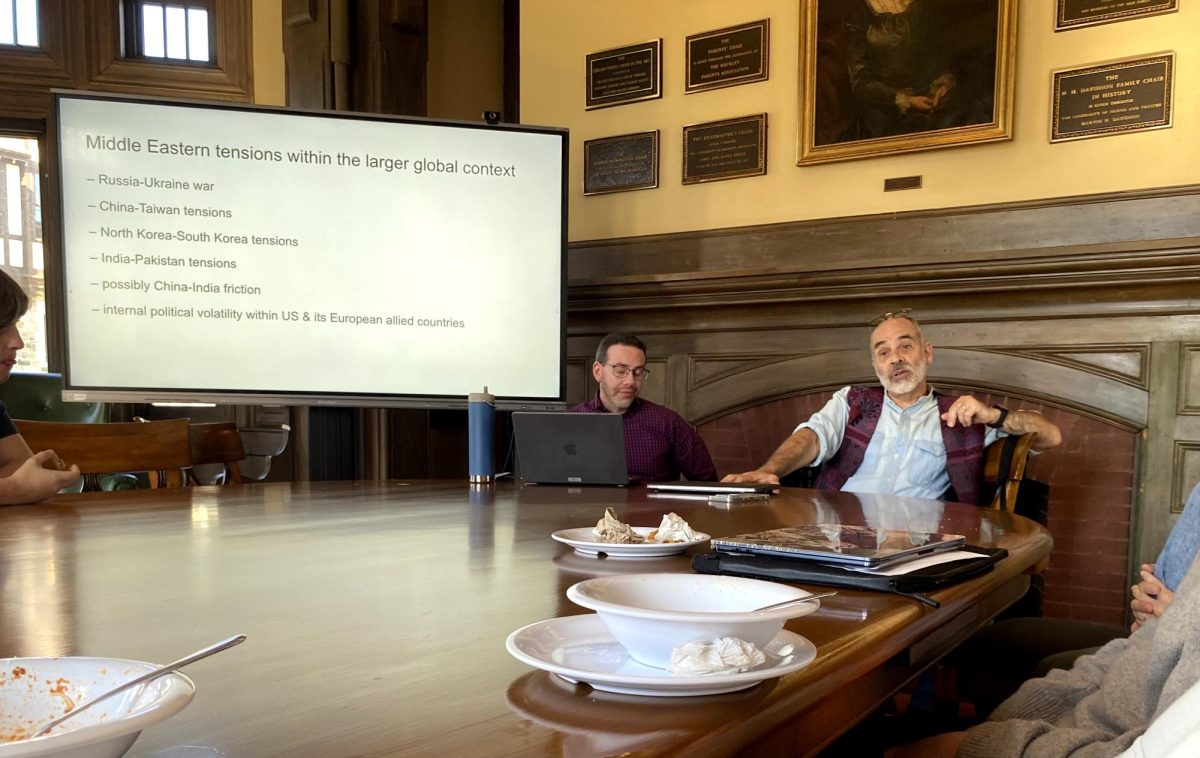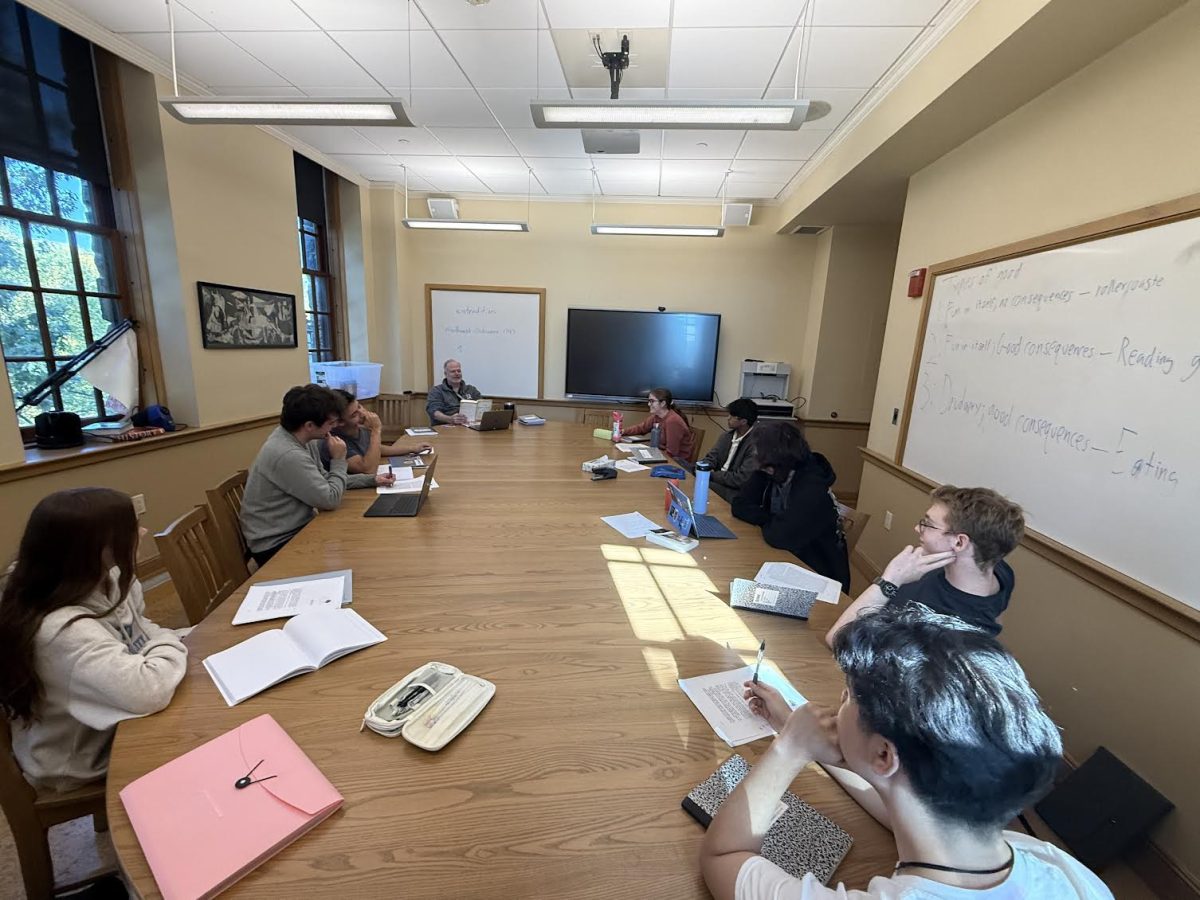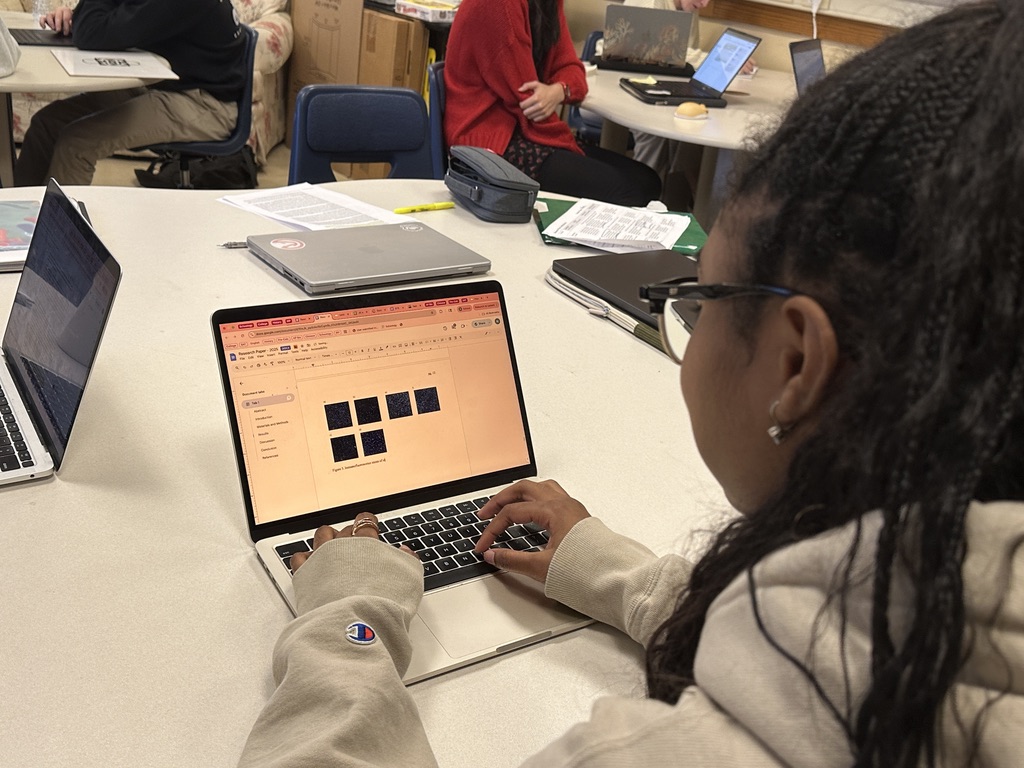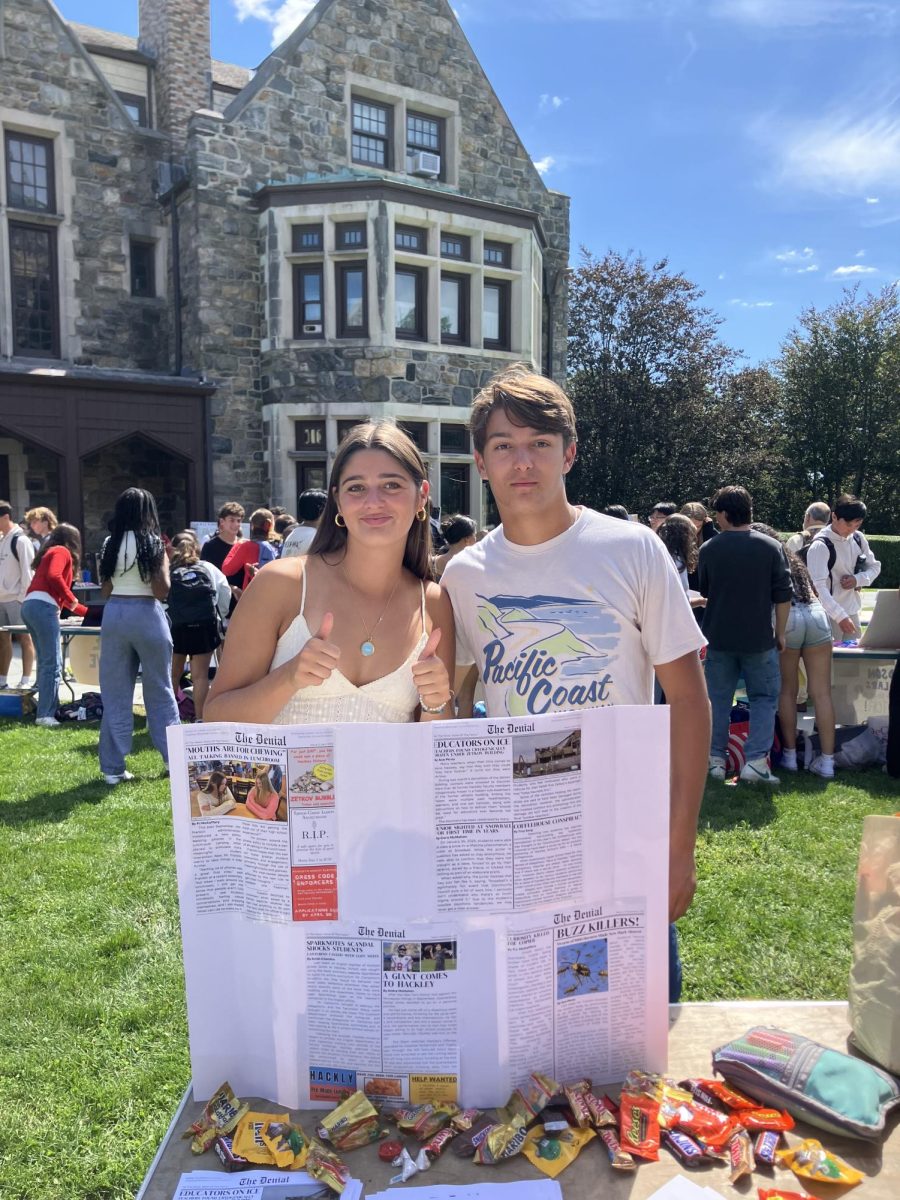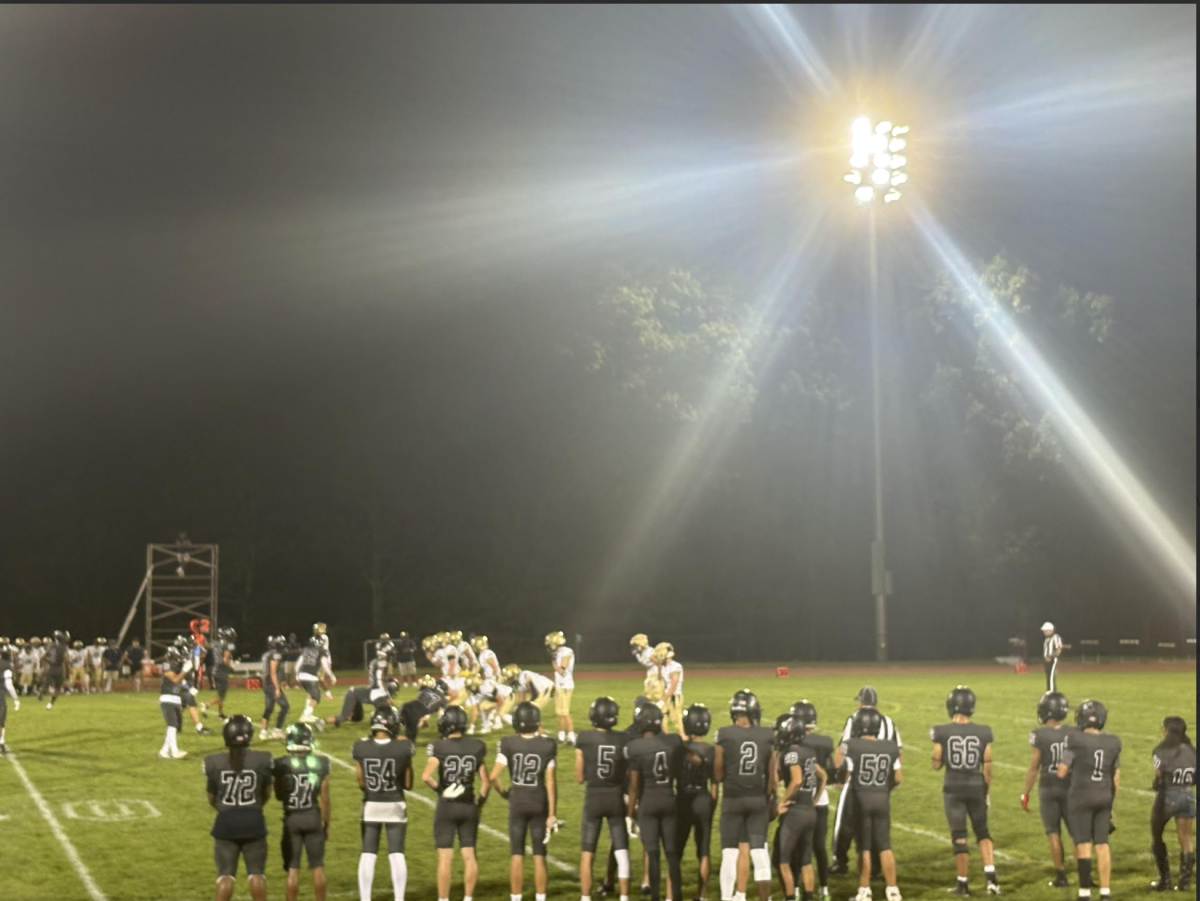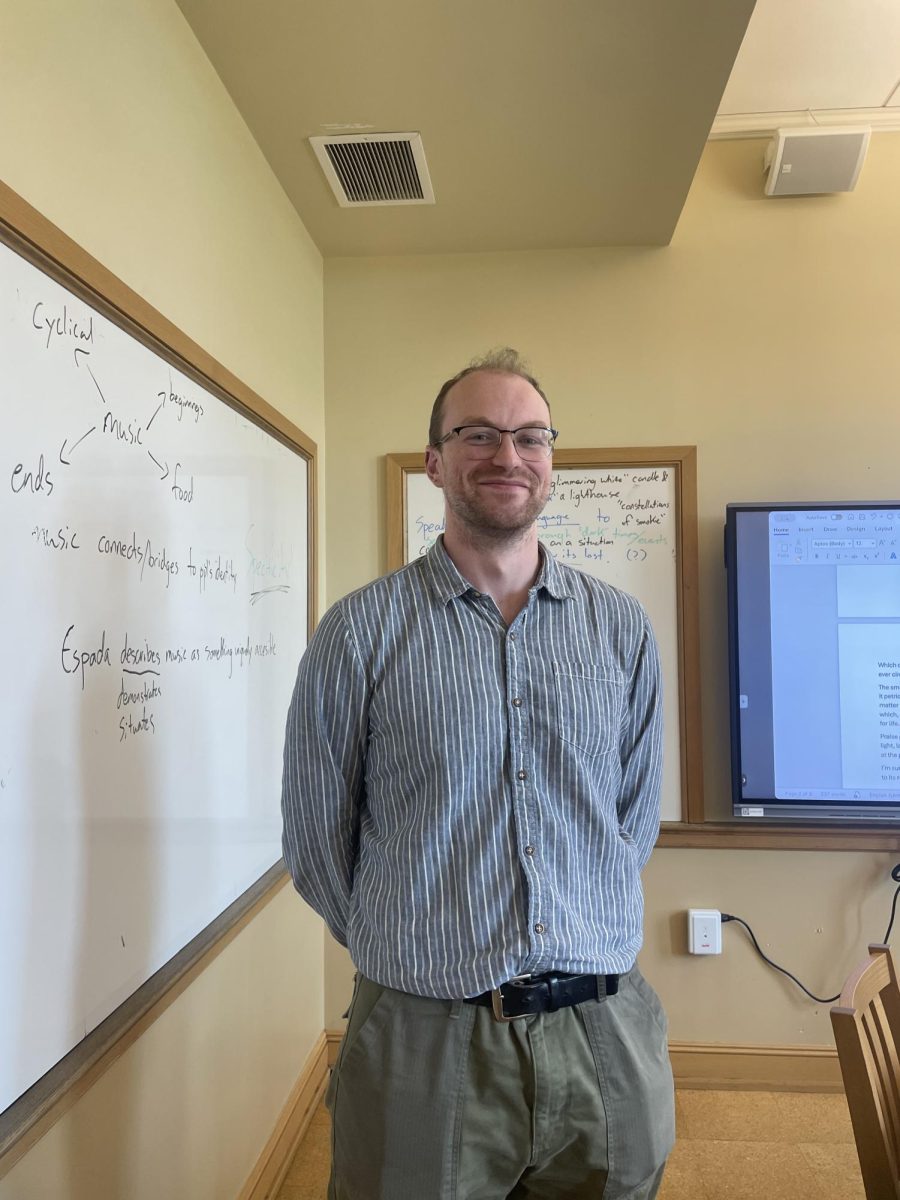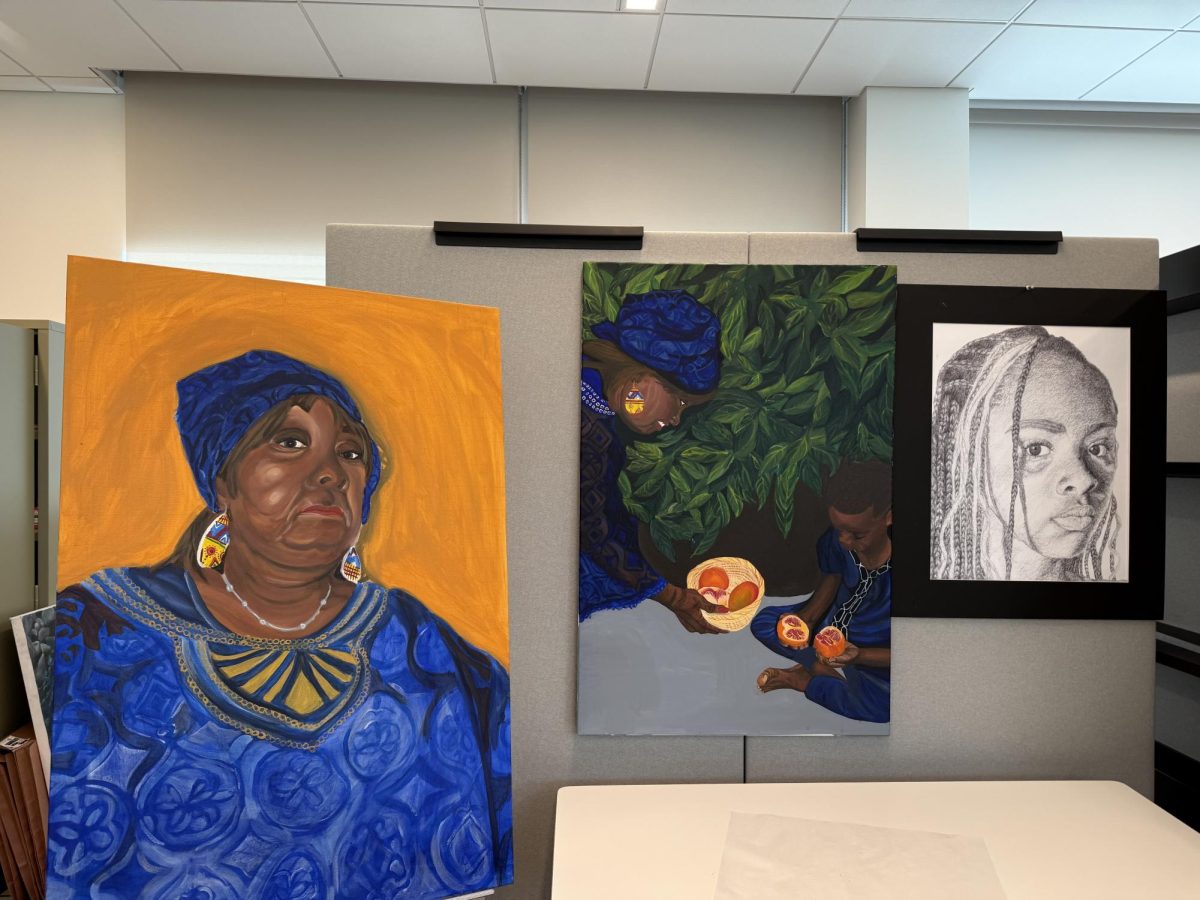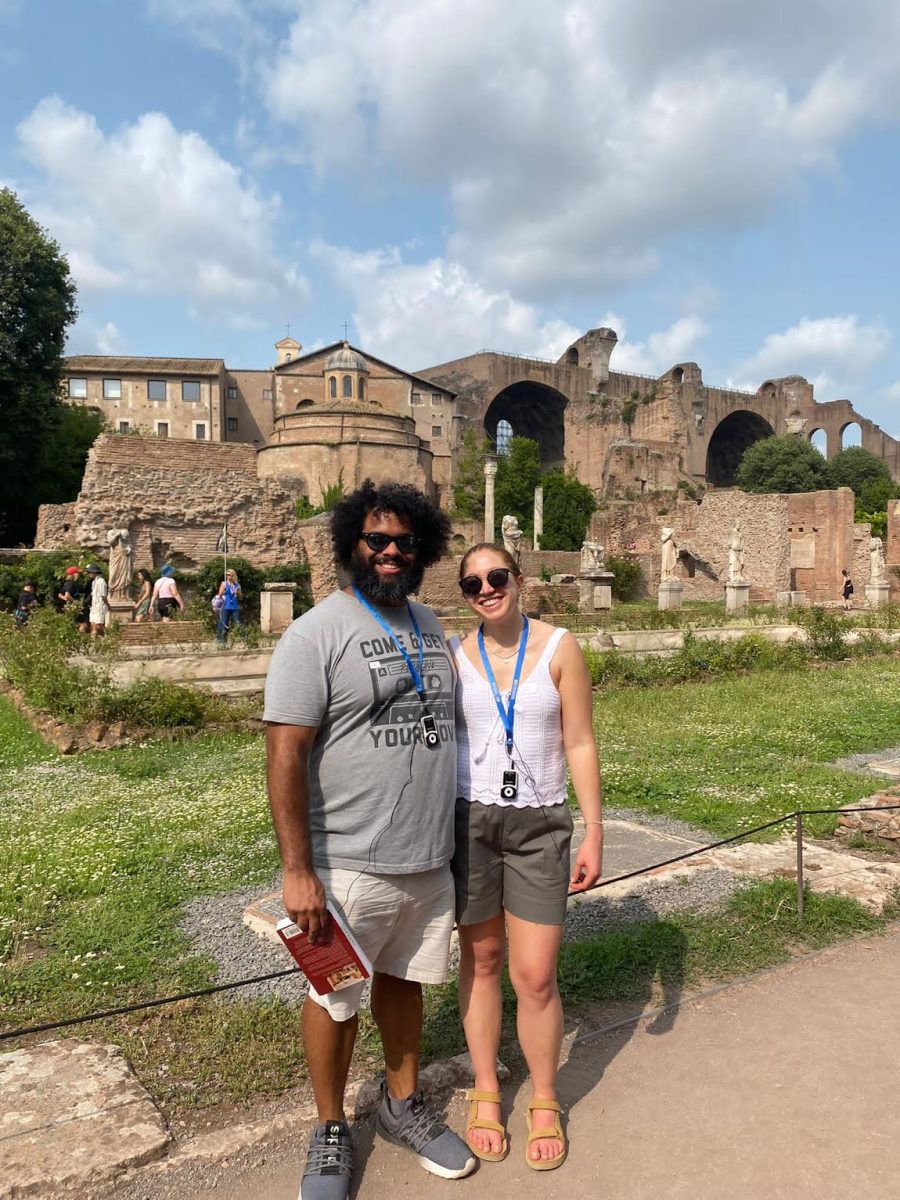Curiosity filled the air as Hackley faculty and students gathered in the Lindsay Room to learn about the continuing war in the Middle East. With the war in Gaza entering its second year, Upper School history teachers Vladimir Klimenko and Michael Bass gathered to discuss the continuing conflict between Israel and Hamas.
To start the conversation with some ground rules, History Department Chair Christopher Loomis said the roundtable should be viewed as a “learning event, not a debate.”
Sophomore Lilly Rosenthal thinks this mindset is important. “We are conflict-avoidant beings, and roundtables encourage us to have conversations we would otherwise avoid about things that matter to us. Roundtables do an excellent job at pushing us to have hard, meaningful conversations,” she said.
Students attending the roundtable discussion were advised to read a New York Times article, “Why the World’s Biggest Powers Can’t Stop a Middle East War.” The article focuses on explaining why no single global power, including the United States, can steer this war towards peace and how prolonged conflict is going to lead to larger tolls on the communities in the future.
The History Department has hosted many roundtables over the years, including about the Stonewall uprising and the criminal justice system. About a year ago, in the wake of the October 7th attack, the department hosted a roundtable discussion on the Israel-Hamas conflict, with a presentation encouraging students to ask questions so that they could better understand what was going on around them.
Now, a year later, this roundtable also started with a presentation led by Mr. Bass and Mr. Klimenko. They began by going back in time and discussing the history and roots of this conflict.
The presentation explained that in 1917, the British drafted the “Balfour Declaration” during World War I. This document shows the British government’s support for creating a home for the Jewish people in Palestine. The problem with the Balfour Declaration, however, is that it did not say specifically how the land would be divided between the Jewish people and the Palestinians already living there.
This was a great development for much of the Jewish community, as they finally had the opportunity to return to the Holy Land. Many Jews throughout Europe who had endured great persecution fled to their new land. This action benefited the British as well; it gave them an ally in the Middle East.
There were many attempts to create a division of the land. While Jewish leaders approved of these plans, Middle Eastern leaders were worried about different choke points throughout this territory and that they would be losing access to many of their natural resources.
Mr. Bass and Mr. Klimenko discussed some of the main events and conflicts in the Middle East that have shaped the situation we are in today. They discussed the Six-Day War between Israel and the Arab countries in June 1967. Israel was able to capture the Sinai Peninsula, Gaza Strip, West Bank, Old City of Jerusalem, and Golan Heights.
Almost 30 years later, in 1993, after months of secret negotiations, the Oslo Accords were signed by the Israeli Primister, Yitzhak Rabin and Yasser Arafat, the leader of the Palestine Liberation Organization (PLO). This document established the formula for a two-state solution. The agreements led to a restricted form of self-rule for Palestinians in the West Bank and Gaza Strip by establishing the Palestinian Authority. The goal of the Oslo Accords was to eliminate the Israeli-Palestinian conflict; however, terms that detailed how the territory would be split up were never agreed upon and the conflict still persists with no end in sight.
This conflict escalated in October 2023, when Palestinian militant group, Hamas, attacked Israeli communities around the Gaza Strip. It was reported that around 1,200 Israeli people were killed and 251 were taken hostage by Hamas.
As of late November 2024, of the 251 Israeli hostages taken by Hamas, 63 still remain alive in captivity. These people include little children and senior citizens all who have been held hostages for over 430 days. It is reported that 117 hostages have been freed. 78 hostages were released in an exchange deal, 27 foreign and dual nationals were released outside the deal and Israel has reduced 8 more in military endeavors. The last 4 were women released by Hamas for “humanitarian reasons.” The other 71 hostages were confirmed dead, 34 of the bodies still remain in Gaza.
Hamas is an Islamic militant group that has been designated as a terrorist group by a number of countries, including the U.S. and the European Union. In 2006, Hamas defeated its rival political party and took control over the Gaza Strip.
In response to the brutal Hamas attack, Israel launched an attack on the Gaza Strip, with the goal of destroying Hamas. Although Israel has been able to largely decimate Hamas, it has resulted in the deaths of more than 43,000 innocent Palestinians.
Yahya Sinwar, the leader of Hamas and “mastermind” behind the attacks on Israel, was killed by Israeli forces on October 26, 2024.
“The roundtable discussion served as an equalizer for information,” said Lilly. “In a world of fractured views and news sources, it was nice to be on the same page as everyone in terms of information about current events.”
“I liked the way they started with the history of the conflict because it gave people grounding, it allowed for more thoughtful questions and discussion,” said sophomore Ava Cronin.
After Mr. Bass and Mr. Klimeko presented their information, and they opened the floor to students and faculty to ask questions. Many people asked why Israel hasn’t stopped the attacks on Gaza. This is because no side has a clear strategy for peace, and without Gaza improving their systematic challenges, there seems to be no path to peace.
Others might wonder why the United Nations (UN) hasn’t taken any major actions to end the war. The UN only functions when the major powers are in agreement. The U.S., Russia, France, China, and the United Kingdom are the only countries with veto power. Of these countries, Russia and China are aligned with Iran, whereas the U.S. supports Israel.
Even though the U.S. doesn’t have much of a say when it comes to negotiating with Hamas, as the U.S. has declared them a terrorist organization, they are in constant contact with Israeli leaders. The next president to take office will change the course of this war. It was believed if Vice President Kamala Harris was elected that she would be tougher on Israel, encouraging Israel to negotiate a ceasefire. Former president and president-elect Donald Trump, however, is believed to be more supportive of Israeli Prime Minister Benjamin Netanyahu and his desire to continue the war.
Sophomore Zach Weinreich asked if the U.S. military would be deployed to support Israel if it appeared that Israel was losing the war. Mr. Klimeko and Mr. Bass each gave their own opinion on the topic, but came to the same conclusion that the likelihood of Israel getting to that position is very low, so they don’t think that the U.S. would send in troops.
Sophomore Sophia Atkins asked if other countries were providing military aid to Israel in the war. While it is possible Israel is receiving aid from other countries, the U.S. is by far the biggest supplier of weapons to Israel. Israel has far superior weapons and technological intelligence compared to Hamas.
The Israel-Gaza Roundtable was an excellent example of how to effectively hold discussions about relevant, yet sensitive issues.
“What I enjoy the most about roundtables is that they allow people to learn more about topics in the news that interest them,” said sophomore Lara McComiskey. “It’s one of the things that makes Hackley such a special place.”

